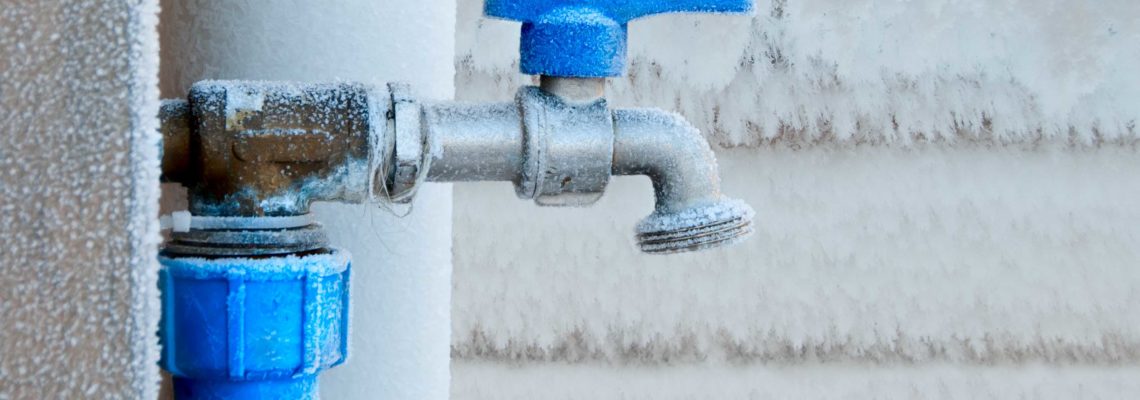Most materials get smaller and denser when they freeze. But water that freezes actually expands by around 11%, which can cause a lot of pressure on whatever container it’s in. When the frozen water expands, it can cause the container or pipe to break, no matter what it’s made out of. Learn more about the most common reasons for frozen pipes and how to prevent water damage in Springfield Missouri.
How Does Freezing Damage Water Pipes?
Pipes carrying water can be easily damaged during colder weather because of the water inside freezing and expanding. Pipes exposed to the outside temperatures, like hose bibs and sprinkler lines, as well as pipes in unheated areas of your home like basements or attics, are more likely to suffer from frozen water inside.
Older plumbing systems may be more vulnerable because the pipes may be weakened by corrosion. When the weather is stormy, it can damage electrical power lines, which means the home may lose the heating system. If this happens and the house gets cold enough, it could lead to frozen pipes inside the home, even if they’re insulated and in great condition.
Insulation and Freezing Pipes
Insulation can help keep pipes warmer to reduce the chance of freezing, but if the insulation is added incorrectly, it can actually insulate the heat away from the pipes. This could mean it’s easier for the pipes to freeze. Some homes are not properly constructed to deal with extremely cold weather, so many pipes are not insulated at all. If the temperatures get too low, it could lead to the pipes freezing and bursting.
Winterizing Pipes to Prevent Freezing
Snowbirds who will head to warmer climates for the winter need to winterize their homes to help prevent frozen pipes. This is done by draining the plumbing system and adding antifreeze to the fixtures. This needs to be done completely for it to work. Compressed air can be used to ensure that all pipes are completely empty.
How Does the Water Damage Occur?
Most of the time, the water damage occurs once the pipe thaws and the water is turned back on. The leak may not be noticed until it has already caused significant damage because the pipes that froze and burst may be hidden behind a wall. It may be possible to hear spraying water, but this likely isn’t discovered before significant damage is done.
How to Prevent Frozen Pipes While Away
Homeowners should be careful to protect their home from frozen pipes if they are going away for more than a couple of days. To do this, you should shut off the water supply and drain all pipes. You can have someone check on the home at least once a week. It’s also a good idea to protect your pipes with insulation and to have the HVAC system inspected.
Homeowners should always keep the temperature in their home above 55 degrees when they’re away. Turn off the water heater and clean gutters and downspouts to ensure water drains away from the home. If needed, service the sump pump and unplug all nonessential appliances.
When frozen pipes do happen, they can cause significant water damage fast. If you ever experience water damage in your home, call the professionals at PuroClean Certified Restoration in Springfield, Missouri to make sure the water remediation work is right the first time.


